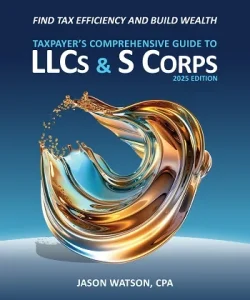
Business Advisory Services
Everything you need to help you launch your new business entity from business entity selection to multiple-entity business structures.
Hey - Our site just had a makeover and we are sorting through the hiccups!
Hey - Our site just had a makeover and we are sorting through the hiccups!

Everything you need to help you launch your new business entity from business entity selection to multiple-entity business structures.

Designed for rental property owners where WCG CPAs & Advisors supports you as your real estate CPA.

Everything you need from tax return preparation for your small business to your rental to your corporation is here.

Table Of Contents


Every year, someone walks into our office with a grin and a gleaming new “business asset” — a Ferrari, a Porsche, maybe even a pair of them. Well, that’s not entirely true since over 80% of our clients live outside of Colorado, but don’t let the facts get in the way of a good story. The story usually starts the same way: “I use them for marketing. I go to car shows. It’s a legitimate write-off.”
And every time, WCG CPAs & Advisors responds with the same skeptical shrug. While you might think your Aston Martin doubles as a rolling billboard, even in racing green, the Tax Court tends to see something else entirely: personal enjoyment cleverly disguised as business expense. Or perhaps not so cleverly.
Over the years, a handful of tax court cases have driven this point home with precision (ok, bad pun) — yachts, race cars, and even attorneys trying to write off their weekend hobbies. The common thread? The taxpayers lost every single time.
Let’s take a closer look at why these arguments fail, how the law actually reads, and what counts as real advertising versus creative fiction.
The setup is easy to understand. You own a single-member LLC taxed as an S corporation. You’re successful, and you’d like to have something nice that maybe, just maybe, can earn its keep on the tax return. So you buy one luxury car. Then another. You tell yourself they’re “business development tools” — a way to make an impression at networking events, to connect with the right kind of clients, or to “represent your brand.”
In theory, this doesn’t sound outrageous. If you deal with affluent clients, showing up in a high-end car might seem like on-brand marketing. The problem is that the tax code doesn’t see it the same way — it cares about evidence, documentation, and reasonableness. When the IRS looks at your business, it asks two questions:
A financial planner or high-end attorney showing up at a car show to “drum up leads” doesn’t check either box. Two exotic cars in a one-person S Corp? That’s a red flag wrapped in Italian leather. Oh, but that Italian leather nicely broken in on a Ferrari in resale red is sooooo appealing, isn’t it?
The rules here are not ambiguous — they’ve been written and tested for decades. Under IRC Section 162, a deductible business expense must be “ordinary and necessary” for your trade or business. “Ordinary” means it’s common and accepted in your industry; “necessary” means it’s appropriate and helpful, not extravagant or personal.
Next comes IRC Section 274(d), which covers “listed property” — cars, boats, airplanes, computers, and anything that could easily double as a personal toy. These assets come with strict substantiation rules: you need contemporaneous logs, dates, destinations, mileage, and purpose for every claimed use. “I used it for business” doesn’t count by itself; you need evidence.
Then there’s IRC Section 280F, which caps depreciation on “luxury automobiles.” Even if the car is 100% business use (which almost never happens), there’s a hard limit to how much you can deduct through depreciation. The tax code does not reward extravagance. Shocker, right?
Put it all together, and you get a simple principle: the more the asset looks like a personal indulgence, the harder it is to prove it’s a business necessity.
Here’s where common sense joins the conversation. No one in their right mind would spend $120,000 on a car just to serve three rental properties or an online shop selling home goods. The scale doesn’t make sense. The IRS doesn’t need a psychology degree to recognize that you are spending $120,000 not on utility but rather on personal desire.
When the cost of an asset far exceeds the “utility” it provides to the business, auditors assume there’s a personal motive. A modest SUV for property inspections? Sure. A McLaren for “tenant visits”? Not likely. Ah, but that orange with black accents is such a sexy color.
Economic reasonableness is an unwritten rule that runs through nearly every tax case. Courts routinely evaluate whether the expense aligns with the scope and size of the business. A one-person S Corp with $150,000 in annual revenue claiming a six-figure luxury car as a necessity is waving a red flag, in true Tifosi style. The expense might exist, but the business justification doesn’t.
And this isn’t about jealousy or judgment — it’s about scale. The IRS expects business owners to spend in proportion to their operations. When luxury enters the picture, the personal component becomes impossible to ignore. Otherwise it could get out of hand very quickly, and the tax code and tax courts recognize the possible runaway train and put the brakes on it.
The courts have heard this story before — and they haven’t been impressed.
Jeffrey Cohen, a self-described “serial entrepreneur,” owned a Florida company that rented beach chairs and umbrellas. He bought a 67-foot, $2 million fishing yacht and claimed it as an advertising expense. His argument was that he took the yacht to fishing tournaments to mingle with wealthy potential clients.
The Tax Court wasn’t buying the fish story. Cohen had no client logs, no branding or signage on the yacht, and no documented business generated from the tournaments. The court found that the expenses weren’t “ordinary and necessary” — they were personal. As the Tax Court opinion put it,
Petitioner failed to establish that he made efforts to promote his business through use of the yacht.
Cohen got to keep his boat, but not the tax deduction. Anyone curious how renting beach chairs and umbrellas spins off enough cash for a $2 million yacht?
A construction company owner tried something similar — this time with a race car. He deducted over $120,000 in racing expenses, claiming the race team was “advertising” for his construction firm. Unfortunately, there were no company logos on the car, no leads generated from the races, and no nexus between drag racing and building homes.
The Tax Court politely disagreed with his interpretation of “advertising.” The expenses were personal hobby costs, not business expenses.
And then there’s Avery — a lawyer who tried to deduct car racing and car show expenses as “networking” for his law practice. The court found that racing was “not common or necessary in the legal profession,” and the taxpayer’s enjoyment of the activity made the business motive questionable at best.
When the case reached the Tenth Circuit, the appellate judges agreed: while lawyers may enjoy fast cars, that doesn’t make the racetrack a deductible marketing expense. Bummer.
Each of these taxpayers had a clever story. Each called it “advertising.” And each failed the same test: a lack of credible, documented evidence showing that the expense had a proximate relationship to their actual business income.
Maybe you do. But networking, by itself, isn’t a deductible business purpose unless it’s part of a documented and measurable marketing effort. Attending a car show because you enjoy the cars and happen to meet a few clients doesn’t make the event a business expense — that’s like claiming your golf trip was a deductible sales call because you discussed work between holes.
Courts and IRS auditors look for proximate cause — a clear, direct relationship between the expense and your business. The car show defense often collapses because there’s no real plan, no follow-up, and no evidence that the event produced actual clients or revenue.
This is no different than country club dues. Section 274(a)(3) of the Internal Revenue Code flat-out says (more car puns)-
No deduction shall be allowed for amounts paid or incurred for membership in any club organized for business, pleasure, recreation, or other social purpose.
That means any dues paid to a country club, golf club, athletic club, airline club, social club, yacht club — even if you claim it’s for networking or client entertainment — are nondeductible. Car shows? Racing events? Sailing regatta? All very similar to the club membership concept above.
The silver lining is that meals with business associates at your country club are tax deductible, and this includes renting the club’s banquet hall for a presentation or similar event.
Now, let’s give credit where it’s due: there are legitimate ways to use your vehicle for advertising. A full wrap with your company’s name, logo, phone number, and website? Absolutely deductible as advertising expense. Even door magnets can count, though the IRS tends to view removable signage with more skepticism.
The cost of the wrap or magnets is deductible in full as advertising. However, the rest of the car’s expenses — fuel, maintenance, insurance — must still be prorated for business miles. You can’t suddenly treat every grocery run as a marketing campaign just because your logo is on the back window. Yeah, don’t believe your bartender or produce clerk.
And no, wrapping a Lamborghini in your company logo doesn’t turn it into a tax shelter. A $3,000 wrap on a $300,000 car still looks like a $300,000 car. The IRS notices that too, and privately scolds you for taking a lovely Urus and wrapping it with a logo. You should probably be arrested for something like that.

Imagine an insurance agent who specializes in motorcycle riders. He buys a Harley-Davidson, wraps it with the agency logo, and because it doesn’t drip oil, he parks it permanently outside the office in a custom display spot near the front door. The bike never moves. It’s insured as property, not as a vehicle, and it’s included in marketing photos and social media posts.
In that case, the motorcycle isn’t transportation — it’s signage. It’s advertising property, much like a storefront banner or a 3D logo sculpture.
If, on the other hand, that same agent rides it to lunch, to work, or to bike rallies, it becomes listed property under IRC Section 280F, and the personal-use problems return. Suddenly, you’re back to mileage logs and substantiation requirements.
The line between “marketing display” and “personal enjoyment” is paper-thin — but it’s also the difference between deductible and denied.
If you’re claiming business use of any car, the key to surviving an audit is simple: documentation, documentation, documentation. Real estate has its location, location, location, why can’t the IRS have a catchy trinity?
Keep contemporaneous mileage logs that show the date, destination, and purpose of every business trip. Keep receipts for wraps or signage and take photos showing that the car is used in public view as a branded vehicle. Record leads or clients that come directly from that exposure.
The IRS doesn’t expect perfection — but it expects honesty, consistency, and proof. “I met people and handed out cards” is not proof.
Also, the tax code doesn’t hate your toys. It just refuses to subsidize them. You can absolutely market your business, and you can even do it creatively. But there’s a difference between a marketing strategy and a lifestyle justification.
Keep in mind that a luxury car used in your business does not have to be all or nothing. No one says you cannot drive a Ferrari to your rental property or go two towns over to pick up groceries on a sunny day. Rather than attempting to convince the world, and yourself, that the car is 100% business use, a more practical and safer way to work a fun car into your tax deduction strategy is assigning a reasonable business use percentage. This takes a ton of pressure off of your documentation and proof of a business connection.
For example, you say your car is 20% business use. Sure, you can’t use bonus depreciation or Section 179 expensing, but you can still enjoy a modest tax deduction. Your story would go like this- “I mainly use the fun car for pleasure, but at times I drive it to client events and other business outings. Here are the connections I made, and the leads generated including some revenue earned.”
Pigs get fed. Hogs get slaughtered.
Ok, this can’t be all gloom and doom, or like Sister Sue from parochial school giving you the “tsk tsk.” Here are 4 steps to tighten up your tax deduction-
Before you even whisper “deduction,” make sure the car genuinely serves your business. A vehicle has to be ordinary and necessary in your trade — meaning other people in your industry actually use similar cars for similar purposes. If you’re a real estate agent showing properties? Maybe. An Etsy shop owner delivering packages in a McLaren? Probably not. We mention McLaren often… such a pretty car and a great Formula 1 team.
The moment you put a car on the books, you’ve invited the IRS for a ride-along without the Kevin Hart comedy. You’ll need a detailed mileage log showing every business trip — dates, destinations, and purpose — plus receipts for fuel, maintenance, insurance, and any wrap or branding work. “I drove it for business sometimes” is not documentation; it’s an admission.
Economic reasonableness matters. The IRS expects your expenses to make sense relative to your business size and income. Spending $120,000 on a “marketing vehicle” for a business that nets $80,000 a year is not ambition — it’s evidence. Buy what your business truly needs, not what you personally want to justify.
Before you claim the tax deduction, or try sliding it over to your CPA alongside your charitable donations list, ask yourself: Would I defend this on the witness stand, under oath, in front of a Tax Court judge? If the answer is “probably not,” then don’t put it on your tax return. The best tax strategies don’t need a lot of explanation- the more words you use to defend something, the less likely you are to win.
If your “marketing plan” happens to double as your weekend hobby, the IRS will eventually remind you that personal enjoyment is not a deduction — it’s just personal enjoyment. So go to the car show, talk to clients, hand out cards, and post your pictures on Instagram. Just don’t try to make the IRS part of your pit crew.
 WCG CPAs & Advisors and Jason Watson, CPA, have released the 2025 Edition of Taxpayer’s Comprehensive Guide to LLCs and S Corps. Over 400 pages of pure pleasure! This edition has updated 2025 data such as IRA and 401k limits including Social Security wage limits, but it also has a bunch of new information spread out various chapters such as customized multi-entity structures, expanded reasonable shareholder salary sections, more tax reduction mechanics among various little tidbits gleaned from hundreds of small business consultations. Riveting!
WCG CPAs & Advisors and Jason Watson, CPA, have released the 2025 Edition of Taxpayer’s Comprehensive Guide to LLCs and S Corps. Over 400 pages of pure pleasure! This edition has updated 2025 data such as IRA and 401k limits including Social Security wage limits, but it also has a bunch of new information spread out various chapters such as customized multi-entity structures, expanded reasonable shareholder salary sections, more tax reduction mechanics among various little tidbits gleaned from hundreds of small business consultations. Riveting!
It is available in paperback for $49.95 from Amazon and as an eBook for Kindle for $39.95. Our book is also available for purchase as a PDF from ClickBank for $29.95. Why do we all love 95 cents? We all know that 39.95 is really 40 bucks. At least we are not like gas stations… $39.949. Silly! Yet we digress. Apple iBook, Barnes and Noble Nook, among others are not utilized since their format is challenging to make mini updates here and there.
How can I avoid self-employment taxes? This simple question was the inspiration for creating an article describing the benefits of an S Corporation. That original article, which was about four pages long, quickly became a series of Knowledge Base articles on the WCG website. The articles touched on basic topics such as how to elect S Corp status, shareholder payroll, reasonable salary determination and liability protection. Those broad topics demanded much more information, both horizontally by spanning into more related issues, and vertically by digging deeper into the granular yet riveting levels of the tax code. Beyond general S Corp benefits, our book will show you-
This book is written with the general taxpayer in mind. Too many resources simply regurgitate complex tax code without explanation. While in some cases tax code and court opinions are duplicated verbatim because of precision of the words, this book strives to explain many technical concepts in layperson terms with some added humor and opinions. We believe you will find this book educational as well as amusing.
Each week we receive several phone calls and emails from small business owners and other CPAs across the country who have read our Taxpayer’s Comprehensive Guide to LLCs and S Corps and praised the wealth of information. Regardless of your current situation, whether you are considering starting your own business or entertaining a contracting gig, or you are an experienced business owner, the contents of this book are for you.
While this book’s origins were based on reducing self-employment taxes through an S Corporation election, it has dramatically expanded to sound business advice from entity structures to operational considerations to business tax deductions and retirement planning.
Enjoy! And please send us all comments, hang-ups and static. This book is as much yours as it is ours, except the tiny royalty part- that’s ours. Stop by and we’ll buy you a beer with the pennies.
While we have you, please check out our rental property book aimed at real estate investors, I Just Got A Rental, What Do I Do?
If you buy our 430-page book and think that we didn’t help you understand small business tax law or the benefits of S corporations, let us know. We never want you to feel like you wasted your money. If you are ready to add some insightful reading into your day, click on one of the preferred formats. Amazon is processed by Amazon, and the PDF is safely processed by ClickBank who will email you the PDF as an attachment.
 |  |  |
| $49.95 | $39.95 | $29.95 |

Want to talk to us about tax return preparation, tax planning and strategy, and all the other things that go with it? We are eager to assist! The button below takes you to our Getting Started webpage, but if you want to talk first, please give us a call at 719-387-9800 or schedule an discovery meeting.
Jason Watson, CPA is a Partner and the CEO of WCG CPAs & Advisors, a boutique consultation and tax preparation CPA firm serving clients nationwide with 7 partners and over 90 tax and accounting professionals specializing in small business owners and real estate investors located in Colorado Springs.
He is the author of Taxpayer’s Comprehensive Guide on LLC’s and S Corps and I Just Got a Rental, What Do I Do? which are available online and from mostly average retailers.
Table Of Contents

Tax planning season is here! Let's schedule a time to review tax reduction strategies and generate a mock tax return.

Tired of maintaining your own books? Seems like a chore to offload?
Did you have questions about how this works? Do you want to chat about your specific luxury car or yacht, and see if we can spin it into a tax deduction?
The tax advisors, business consultants and rental property experts at WCG CPAs & Advisors are not salespeople; we are not putting lipstick on a pig expecting you to love it. Our job remains being professionally detached, giving you information and letting you decide within our ethical guidelines and your risk profiles.
We see far too many crazy schemes and half-baked ideas from attorneys and wealth managers. In some cases, they are good ideas. In most cases, all the entities, layering and mixed ownership is only the illusion of precision. As Chris Rock says, just because you can drive your car with your feet doesn’t make it a good idea. In other words, let’s not automatically convert “you can” into “you must.”
Let’s chat so you can be smart about it.
We typically schedule a 20-minute complimentary quick chat with one of our Partners or our amazing Senior Tax Professionals to determine if we are a good fit for each other, and how an engagement with our team looks. Tax returns only? Business advisory? Tax strategy and planning? Rental property support?

Everything you need to help you launch your new business entity from business entity selection to multiple-entity business structures.

Designed for rental property owners where WCG CPAs & Advisors supports you as your real estate CPA.

Everything you need from tax return preparation for your small business to your rental to your corporation is here.


